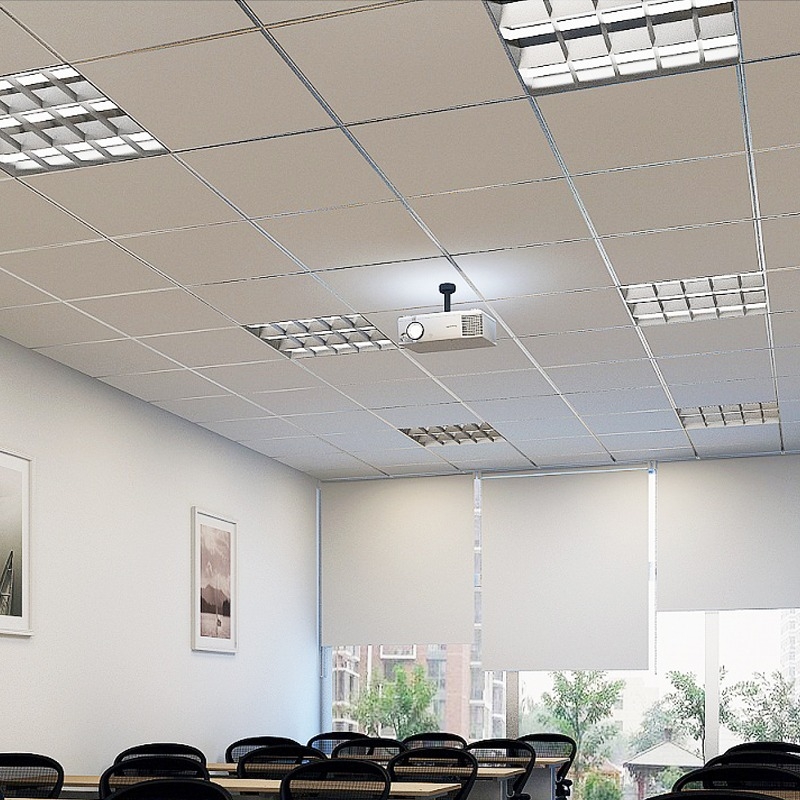IMARC Group’s “Mineral Wool Ceiling Tiles Manufacturing Plant Project Report 2025: Industry Trends, Plant Setup, Machinery, Raw Materials, Investment Opportunities, Cost and Revenue” report provides a comprehensive guide on how to successfully set up a mineral wool ceiling tiles manufacturing plant. The report offers clarifications on various aspects, such as unit operations, raw material requirements, utility supply, infrastructural needs, machinery models, labour necessities, transportation timelines, packaging costs, etc.
In addition to the operational aspects, the report also provides in-depth insights into mineral wool ceiling tiles manufacturing plant cost, project economics, encompassing vital aspects such as capital investments, project funding, operating expenses, income and expenditure projections, fixed and variable costs, direct and indirect expenses, expected ROI, net present value (NPV), profit and loss account, and thorough financial analysis, among other crucial metrics. With this comprehensive roadmap, entrepreneurs and stakeholders can make informed decisions and venture into a successful mineral wool ceiling tiles manufacturing unit.
Request for a Sample Report: https://www.imarcgroup.com/mineral-wool-ceiling-tiles-manufacturing-plant-project-report/requestsample
What is Mineral Wool Ceiling Tiles?
Mineral wool ceiling tiles are acoustic ceiling panels made primarily from mineral fibers, including stone wool or slag wool, derived from natural rock or industrial waste byproducts. These tiles are widely used in commercial and institutional settings such as offices, schools, and healthcare facilities due to their excellent sound absorption, fire resistance, and thermal insulation properties. Manufactured through a process that involves melting raw materials and spinning them into fibers, mineral wool tiles are typically formed into lightweight, porous structures. They are often covered with a decorative facing for aesthetic purposes and enhanced durability. These ceiling tiles contribute to improved indoor air quality by resisting mold, mildew, and microbial growth.
Market Trend and Drivers of Mineral Wool Ceiling Tiles:
The mineral wool ceiling tiles market is primarily driven by growing demand for energy-efficient and sustainable building materials, coupled with increased focus on acoustic comfort and fire safety in commercial and institutional spaces. Stringent building codes and environmental regulations across developed and developing regions are prompting the adoption of mineral wool products due to their non-combustible nature and low VOC emissions. The rise in construction and renovation activities, particularly in office complexes, healthcare facilities, and educational institutions, is further fueling market growth. Additionally, heightened awareness around green buildings and certifications such as LEED and BREEAM is boosting demand for recyclable and eco-friendly materials like mineral wool. Innovations in design and surface finishes, offering enhanced aesthetics alongside performance, are also contributing to wider acceptance. Emerging economies experiencing urbanization and infrastructure development present significant opportunities, while replacement demand in mature markets continues to support sustained industry expansion.
Key Aspects to Setup a Mineral Wool Ceiling Tiles Plant:
- Location to Setup Plant
- Market Research
- Plant Layout
- Construction and Infrastructure
- Equipment/Machinery Procurement
- Documentation and Licenses
- Cost Analysis
Requirements to Setup a Facility:
- Funds
- Machinery
- Lands
Types of Costs to Setting up a Mineral Wool Ceiling Tiles Factory:
- Land, Location and Site Development Cost
- Plant Layout Cost
- Machinery Requirements and Costs
- Raw Material Requirements and Costs
- Packaging Requirements and Costs
- Transportation Requirements and Costs
- Utility Requirements and Costs
- Human Resource Requirements and Costs
Project Economics:
- Capital Investments
- Operating Costs
- Expenditure Projections
- Revenue Projections
- Taxation and Depreciation
- Profit Projections
- Financial Analysis
Key Questions Answered in the Report:
- How has the mineral wool ceiling tiles market performed so far and how will it perform in the coming years?
- What is the market segmentation of the global mineral wool ceiling tiles market?
- What is the regional breakup of the global mineral wool ceiling tiles market?
- What are the price trends of various feedstocks in the mineral wool ceiling tiles industry?
- What is the structure of the mineral wool ceiling tiles industry and who are the key players?
- What are the various unit operations involved in a mineral wool ceiling tiles manufacturing plant?
- What is the total size of land required for setting up a mineral wool ceiling tiles manufacturing plant?
- What is the layout of a mineral wool ceiling tiles manufacturing plant?
- What are the machinery requirements for setting up a mineral wool ceiling tiles manufacturing plant?
- What are the raw material requirements for setting up a mineral wool ceiling tiles manufacturing plant?
- And more…
How IMARC Can Help?
IMARC Group is a global management consulting firm that helps the world’s most ambitious changemakers to create a lasting impact. The company provide a comprehensive suite of market entry and expansion services. IMARC offerings include thorough market assessment, feasibility studies, company incorporation assistance, factory setup support, regulatory approvals and licensing navigation, branding, marketing and sales strategies, competitive landscape and benchmarking analyses, pricing and cost research, and procurement research.
Services:
- Plant Setup
- Factory Audit Service
- Regulatory Approvals, and Licensing
- Company Incorporation
- Incubation Services
- Recruitment Services
- Marketing and Sales
Contact Us:
IMARC Group
134 N 4th St. Brooklyn, NY 11249, USA
Email: sales@imarcgroup.com
Tel No:(D) +91 120 433 0800
United States: +1-631-791-1145

